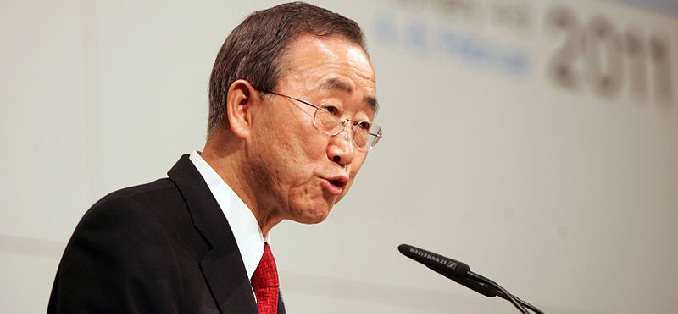North Korea is signalling that it is committed to another missile test, following a nuclear test earlier this year and alongside nuclear threats it’s leveling at South Korea. The moves have put the entire region on edge, with Japan deploying Patriot batteries in Tokyo and U.S. Defense Secretary Chuck Hagel warning Pyongyang over the situation:
North Korea is “skating very close to a dangerous line” after weeks of saber-rattling, U.S. Defense Secretary Chuck Hagel warned Wednesday as northeast Asia watched for an expected missile test. “Their actions and their words have not helped defuse a combustible situation,” Hagel told reporters at the Pentagon. He said the United States and its allies want to see North Korean rhetoric “ratcheted down,” but if that doesn’t happen, “our country is fully prepared to deal with any contingency.” “We have every capacity to deal with any action North Korea will take to protect this country and the interests of this country and our allies,” Hagel said.
Iran has been closely linked to North Korea’s missile and nuclear programs. Analysts suspect that Iranian assistance was critical in rapidly advancing North Korea’s missile program. Iranian missile experts are thought to have been on the ground during North Korea’s recent rocket launch, and there have reportedly been high-level meetings between Iranian and North Korean officials on the issue.
On the nuclear front, Pyongyang has developed its nuclear arsenal despite international sanctions and diplomatic efforts. In 2003, North Korea unilaterally withdrew from the Treat on the Non-Proliferation of Nuclear Weapons. The country tested nuclear weapons in 2006, 2009, and in February 2013.
The February 2013 test was suspected at the time of being a mechanism for Iran to outsource its nuclear development to North Korea, with a U.S. official saying that “it’s very possible that the North Koreans are testing for two countries.” Suspicions heightened earlier this month when it emerged that the North Koreans had taken unusually stringent measures to shield the composition of the blast from detection. It is feared that the explosion was uranium-based rather than plutonium-based, as had been the previous two tests.
North Korea is not known to possess a pathway to creating weapons-grade uranium. Meanwhile the Iranian program largely focuses on enriching uranium, with Tehran making moves to activate a plutonium pathway only recently. Any uranium bomb tested in North Korea would functionally be treated as an Iranian bomb, either directly or because Iran had transferred the technology to build it.
Meanwhile Western officials have drawn parallels between how the two countries developed nuclear weapons, with an emphasis on the need to prevent Iran from following North Korea’s example and using negotiations to stall for time while developing the infrastructure necessary for acquiring weapons of mass destruction. United Nations Secretary-General Ban Ki-moon in February made the point explicitly:
“We should not give much more time to the Iranians, and we should not waste time,” Ban said. “We have seen what happened with the DPRK.” The Democratic People’s Republic of Korea, the formal name for North Korea, exploded a third nuclear test device this week. The North exploited a decade of fitful diplomatic efforts to make progress toward a weapon. “It ended up that they [were] secretly, quietly, without any obligations, without any pressure, making progress,” Ban said.
Secretary of State John Kerry made the same point this week as fears deepened that Iran is locking in critical infrastructure to give it a “virtual arsenal” which would enable the regime to rush across the nuclear finish line at will:
SECRETARY KERRY: On Iran, I think it’s fair to say that we were hoping that there would be a more fulsome presentation in Almaty that would have laid out with greater specificity and greater breadth what could have been done to try to reduce the tensions over Iran’s nuclear program. And clearly, any effort – not unlike the DPRK, where Kim Jong-un has decided to reopen his enrichment procedures by rebuilding a facility that had been part of an agreement to destroy – in the same way as that is provocative, to open up yellowcake production and to make any step that increases the rapidity with which you move towards enriched fissile material raises the potential of questions, if not even threat. And I think that is not constructive.
So we will have discussions in London about this, yes. And there will be further discussions in Washington, and we’ll take stock of precisely where we are. But I’ll repeat what I said, and have said in several stops: The clock that is ticking on Iran’s program has a stop moment, and it does not tick interminably. We have said again and again that negotiations are not for the sake of negotiations, they are to make progress. And negotiations cannot be allowed to become a process of delay which in and of itself creates greater danger.
[Photo: Kai Mörk / Wiki Commons]




